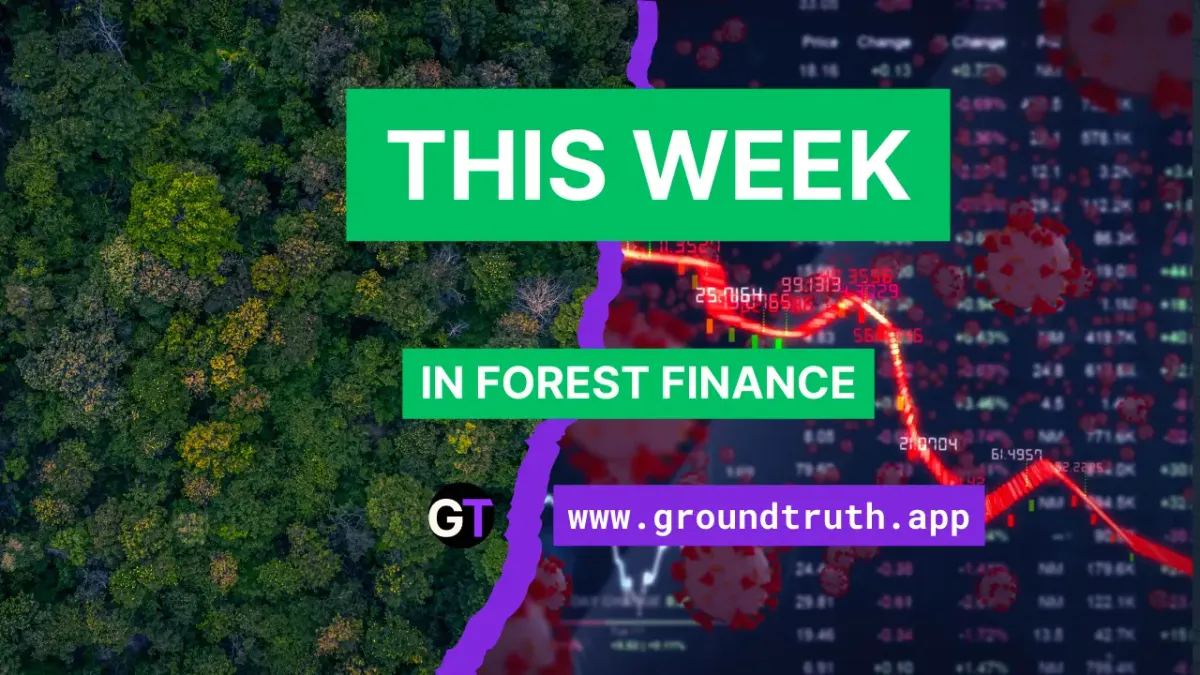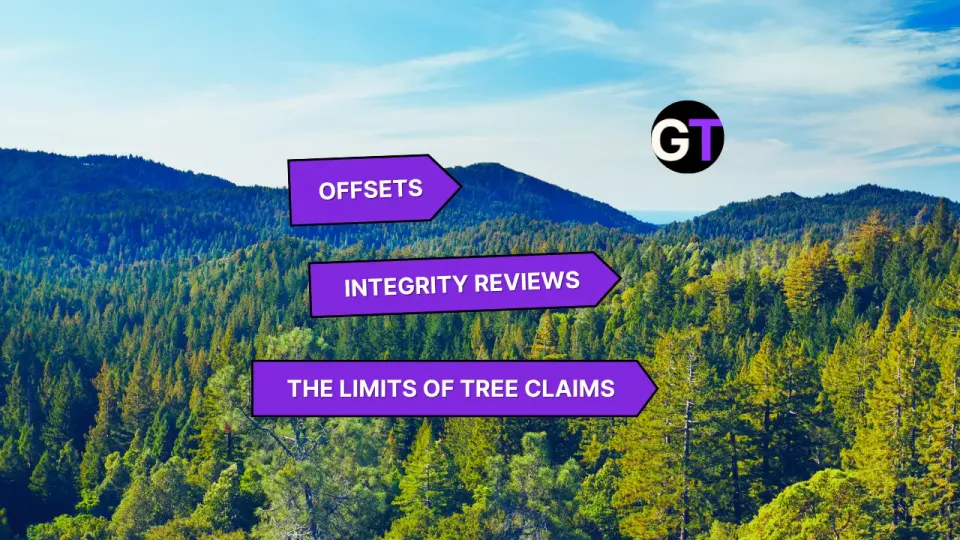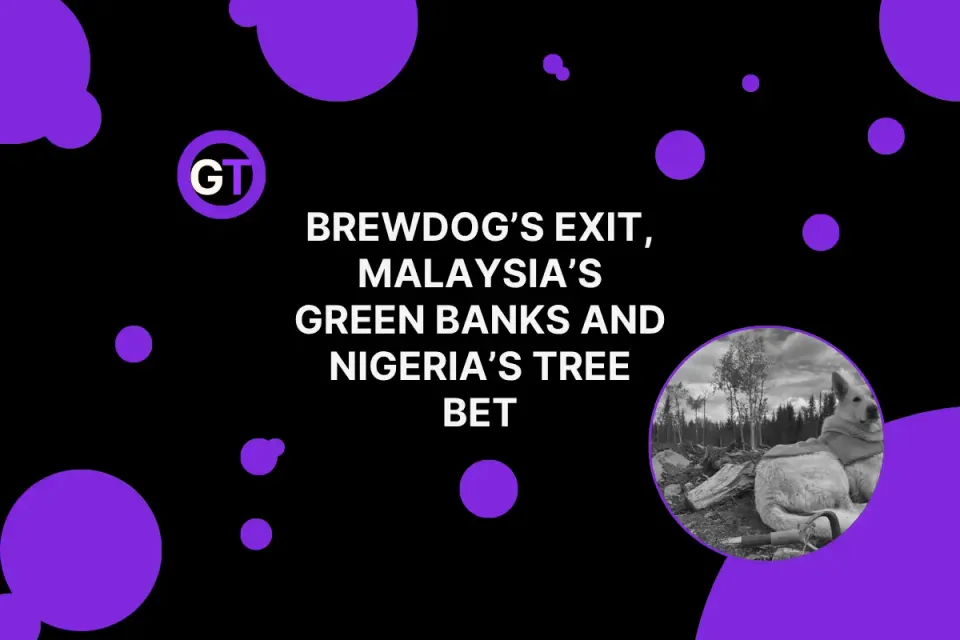This Week In Forest Finance, April 24
Weekly Forest Finance: Microsoft offsets 1.4M tonnes CO₂ via reforestation, UK sets carbon credit rules, Nestlé goes green.

Microsoft Backs Appalachia Reforestation to Offset 1.4M Tonnes of Carbon
Tech titan meets climate comeback: Microsoft just inked a deal with Living Carbon to offset 1.4 million tonnes of CO₂ by reforesting 25,000 acres of degraded mine lands in Appalachia. These aren't your average tree-planting plots—they're battered post-coal landscapes that Living Carbon aims to revive with science-backed reforestation and native species. The result? Not just carbon capture, but also boosted biodiversity, cleaner soil and water, and fresh economic life in forgotten rural areas.
💬 With third-party validation from Isometric's rigorous reforestation protocol, this isn't just carbon removal—it’s a bold attempt to turn environmental liabilities into climate solutions. Big question: Is this the future of carbon offsets, or just a green moonshot with a Microsoft-sized safety net?
👉👉 Read more in Morningstar
Philippines' Carbon Credit Market: A Green Gold Rush or Regulatory Riddle?
The Philippines is stepping into the carbon credit arena, aiming to transform its lush landscapes into lucrative carbon sinks. The government has announced plans to establish a national carbon credit market, positioning the country as a potential leader in Southeast Asia's climate finance sector. This initiative seeks to monetize the nation's vast forest reserves and renewable energy projects, offering a new revenue stream while contributing to global emission reduction efforts.
However, the path is fraught with challenges. Experts caution that without robust regulatory frameworks and transparent monitoring systems, the market could become a breeding ground for greenwashing and exploitation. Ensuring that local communities benefit from these projects is paramount, as is maintaining the integrity of the environmental claims associated with the credits.
💬 So, will the Philippines' foray into carbon trading be a model for sustainable development, or will it falter under the weight of its own ambitions?
👉👉 Read more in the Daily Tribune
Nestlé’s Reforestation Recipe: 3 Million Trees, One Grande Sustainability Pledge
In a move that’s equal parts climate action and corporate karma, Nestlé has pledged to plant a whopping 3 million trees across Mexico and Brazil by mid-2021. It’s all part of the food giant’s quest for carbon neutrality by 2050—and a way to greenwash... er, green-boost its coffee and cocoa supply chains. Partnering with One Tree Planted, Nestlé is targeting biodiversity hotspots like Tabasco and Veracruz, aiming to offset emissions from its shiny new $154 million coffee plant. With each tree costing up to $15, this leafy investment could top $45 million just in planting costs.
💬 So, are these forests-for-footprints the future of corporate climate strategy—or just another way to brew good PR?
👉👉 Read more in ABS-CBN
Britain’s Betting Big on Carbon Credits—But What Makes a Forest Project Legit?
In its latest climate flex, the UK has rolled out plans to transform itself into the global HQ for green finance, dropping a shiny new framework to bring order—and integrity—to the chaotic world of voluntary carbon and nature markets. The government’s betting that clearer rules and higher standards will boost trust, open revenue streams, and attract climate-conscious investors. With projections putting carbon markets at a cool $250 billion by 2050, the UK wants its businesses (farmers and foresters included) cashing in while capturing carbon. The six draft principles emphasize transparency, accountability, and making sure carbon credits aren’t just glossy green stickers slapped on business-as-usual. Think: measurable climate benefits, honest reporting, and actual trees in the ground—not just vibes. The initiative has also earned nods from Indigenous leaders and market watchdogs for centering rights and rigorous standards. Consultation’s live for 12 weeks, so now’s your chance to help shape the future of the carbon hustle.
💬 With all this talk of “high integrity,” what actually separates a solid reforestation project from just planting trees and calling it a day?
👉👉 Read the press release at Gov.UK
Nature Metrics 101: World Economic Forum’s Financial Playbook for Reforestation (and Beyond)
The World Economic Forum’s Nature Positive: Corporate Assessment Guide for Financial Institutions drops a comprehensive framework for banks, investors, and insurers to get serious about nature. This guide isn't just a tree-hugger's dream; it's a data-rich blueprint for assessing companies’ environmental impacts, dependencies, and plans to halt nature loss—and yes, reforestation and nature-based solutions (NBS) are on the table. The document emphasizes the crucial role financial institutions play in transforming underfunded nature-positive initiatives (like forest restoration) into robust investment opportunities. It outlines 11 indicators—from tracking reforestation and land use to water impacts and biodiversity—that financial institutions can use to gauge how legit a company’s “nature-positive” plans really are.
Projects like forest restoration, regenerative agriculture, and sustainable forestry are highlighted as key investment hotspots, particularly in high-impact sectors like agriculture and mining. With the Kunming-Montreal Global Biodiversity Framework as a backdrop, this guide aims to shift billions in private finance from nature-negative to nature-positive—fast.
💬 If financial institutions are the new power players in saving forests, what kind of accountability should we demand from them to ensure reforestation isn't just a checkbox exercise?
👉👉 Read more from the World Economic Forum

Edited by Chris Harris

This work is licensed under a
Creative Commons Attribution 4.0 International License.





